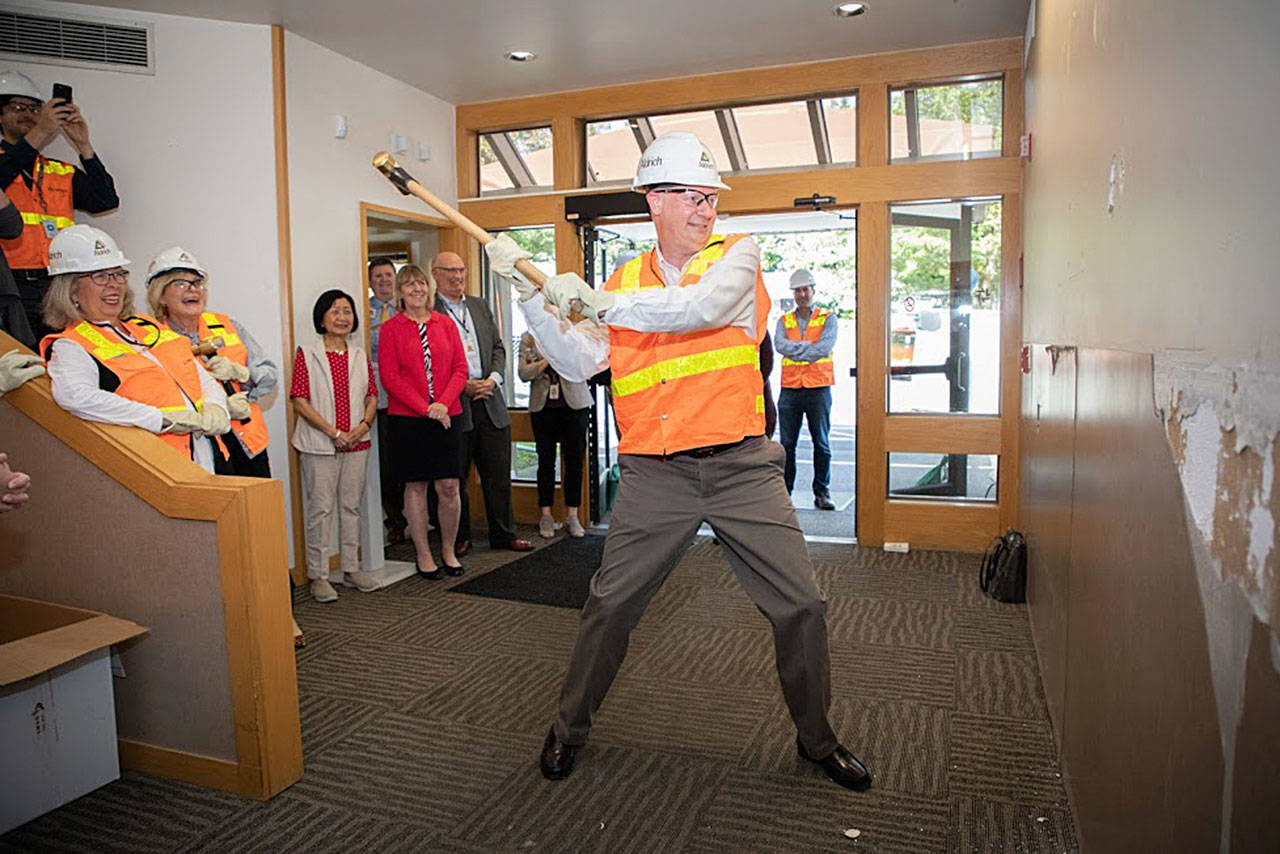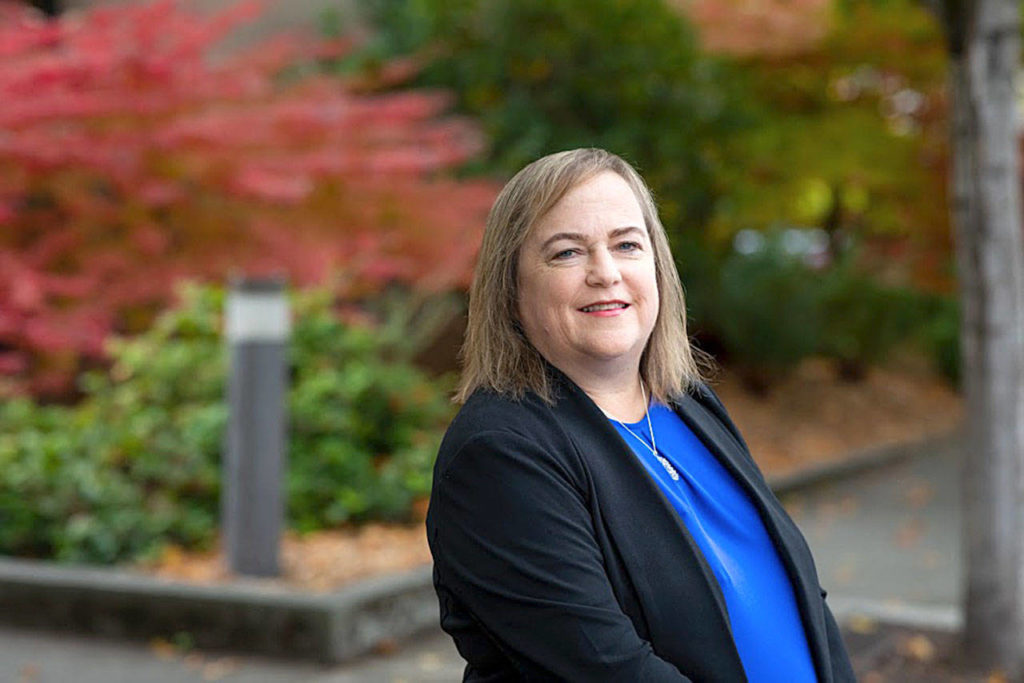Every time Kristi Gaudreau goes for dialysis at the nearest Northwest Kidney Centers clinic, it’s equivalent to a flight to Chicago.
Gaudreau, 54, has chronic kidney disease. The Everett resident needs to receive dialysis four times a week, and each blood-cleansing treatment takes about four hours. Her body can’t support a kidney transplant, so she’ll be on dialysis for the rest of her life.
But soon she won’t need to spend eight hours, including travel and dialysis time, each Sunday, Tuesday, Thursday and Friday to dialyze at Lake City Kidney Center in Lake Forest Park.
The nonprofit Northwest Kidney Centers will open a new clinic in Everett — its first in Snohomish County — later this year.
“We like to minimize the distance that our patients have to travel to get to treatment because they’re already spending the equivalent of an airplane flight to Chicago every time they come to dialysis,” said Linda Sellers, communications director for Northwest Kidney Centers. “That’s a big time commitment.”
The Everett clinic will be the 20th for Northwest Kidney Centers. The nation’s eighth largest dialysis provider, it now operates clinics in King, Pierce and Clallam counties.
The clinic at the Everett Mall Office Park, 1010 SE Everett Mall Way, Suite 104, will accommodate 54 patients to visit three times a week for blood-cleansing treatments that take about four hours each time.
The 7,310-square-foot building will have nine machines for performing dialysis in two shifts. Blood is pumped through a dialyzer, where waste and extra water are filtered out. Only 1 cup of blood is outside of the body at one time.
Staff members also will train patients who wish to do dialysis themselves at home, and will offer free classes for those with serious kidney problems.
Before 1960, kidney failure was a death sentence. Then Dr. Belding Scribner at the University of Washington developed the Scribner shunt — tubes placed in a forearm artery and vein — making it a manageable health condition.
In 1962, Northwest Kidney Centers, formerly the Seattle Artificial Kidney Center, was formed to offer long-term kidney dialysis for the first time.
Today the nonprofit cares for about 1,800 patients with chronic kidney failure, providing about 280,000 treatments each year.
Gaudreau was born without a pancreas and lives with Type 1 diabetes. When she was 18, her doctor told her that her kidneys would eventually fail.
“My sister and cousin, who were diabetic, also had kidney failure and dialyzed at NKC,” said Gaudreau, who started dialysis at 42. “Our family has been using NKC since the mid-’80s. It was routine for us.” Her sister died at 29; her cousin was 41 when he died.
Gaudreau has been been getting dialysis three or four times a week for nearly 13 years. She did do at-home dialysis for a time while she worked as a software trainer. Now that she’s retired, Gaudreau prefers to go in to the Lake City Kidney Center for treatment.
Most patients with kidney failure do dialysis until they can get a kidney transplant. Gaudreau attempted to get a transplant, but doctors told her that her diabetic veins are too thin to support it.
“That’s OK, I’m going to do dialysis for the rest of my life, so it’s pretty important that it’s a place that I like with competent (staff),” Gaudreau said. “It’s sort of a way of life for me.”
Gaudreau, who is a member of the Northwest Kidney Centers board, said she recently went back to college. She’s taking online classes through Calvary Chapel Bible College to finish a bachelor’s degree in biblical studies. She does course work during dialysis sessions.
“I enjoy it because I’m learning all the time I’m there,” she said. “Some people sleep, talk on the phone or turn on a movie, but I definitely like to do homework.”
March is National Kidney Month. About 1 in 10 Americans have kidney disease. Those with permanent kidney failure need regular dialysis or a kidney transplant to stay alive.
More than warning signs, Northwest Kidney Centers focuses on risk factors. The most common causes of kidney disease are diabetes and high blood pressure — both destroy the blood vessels of the kidneys. Other risks include a family history of kidney disease, if you’re over 65 year old and if you’re clinically obese.
Kidney disease can also lead to more serious health problems, such as heart disease, anemia and bone disease.
“More than any symptoms, if you’re in any of those groups, you should pay special attention to your kidney health and make sure that you’re checking in with your doctor,” said Sellers, NKC’s communications director.
She said the tests to check for kidney disease are relatively simple. Doctors will take blood and urine samples, and check your blood pressure.
Gaudreau is looking forward to when she can transfer to the new dialysis clinic in Everett. The Everett Kidney Center will be just 3 miles from her house. Right now, Gaudreau travels 33 miles round-trip four times a week for dialysis.
“I’m so excited. It will cut out a good two hours every time I do dialysis,” she said. “That’s eight hours — that’s a work day. I don’t know what I’ll do with all that extra time.”
For more information, including kidney disease risk factors and prevention tips, visit www.nwkidney.org.
Talk to us
> Give us your news tips.
> Send us a letter to the editor.
> More Herald contact information.


























